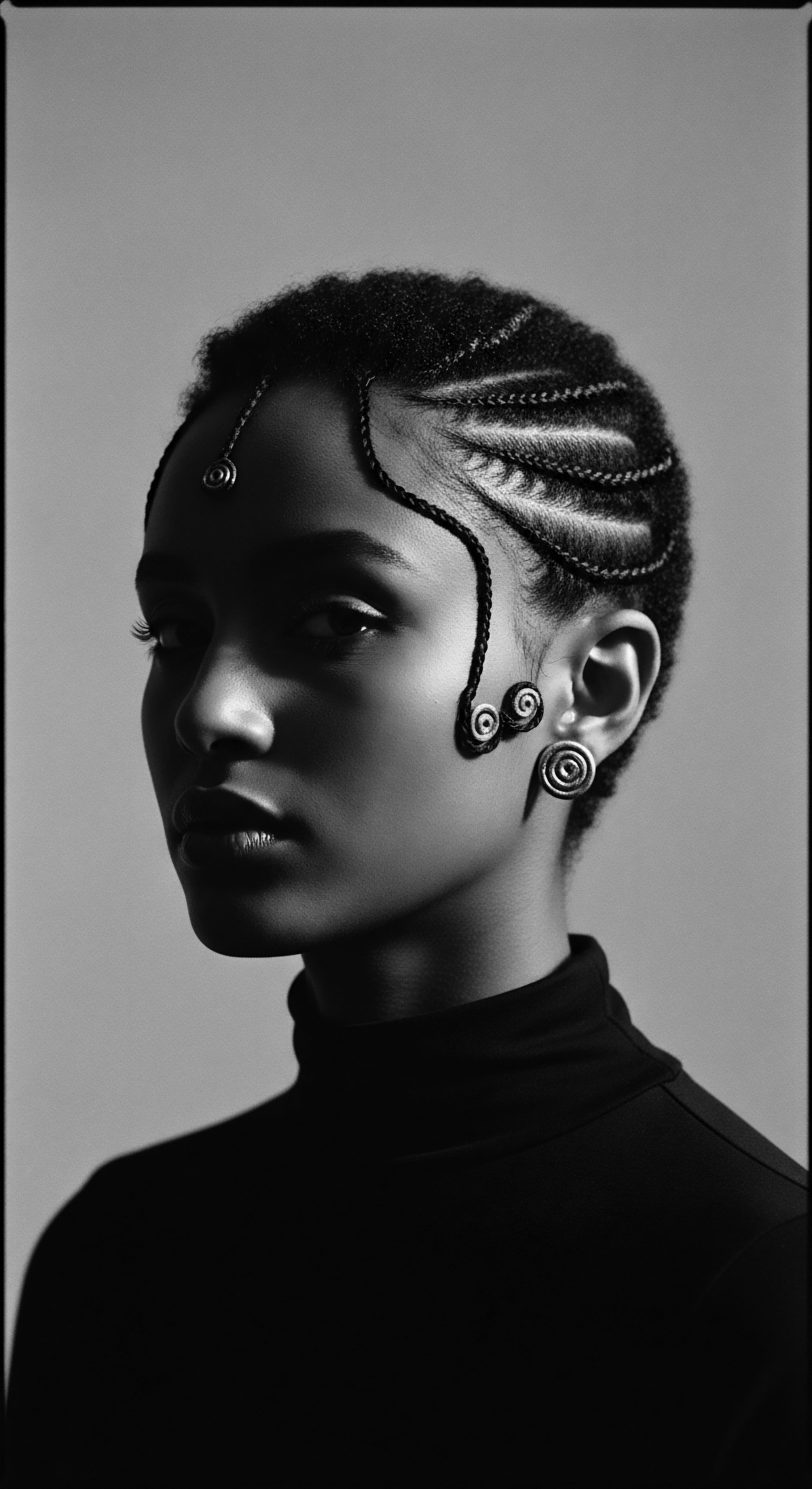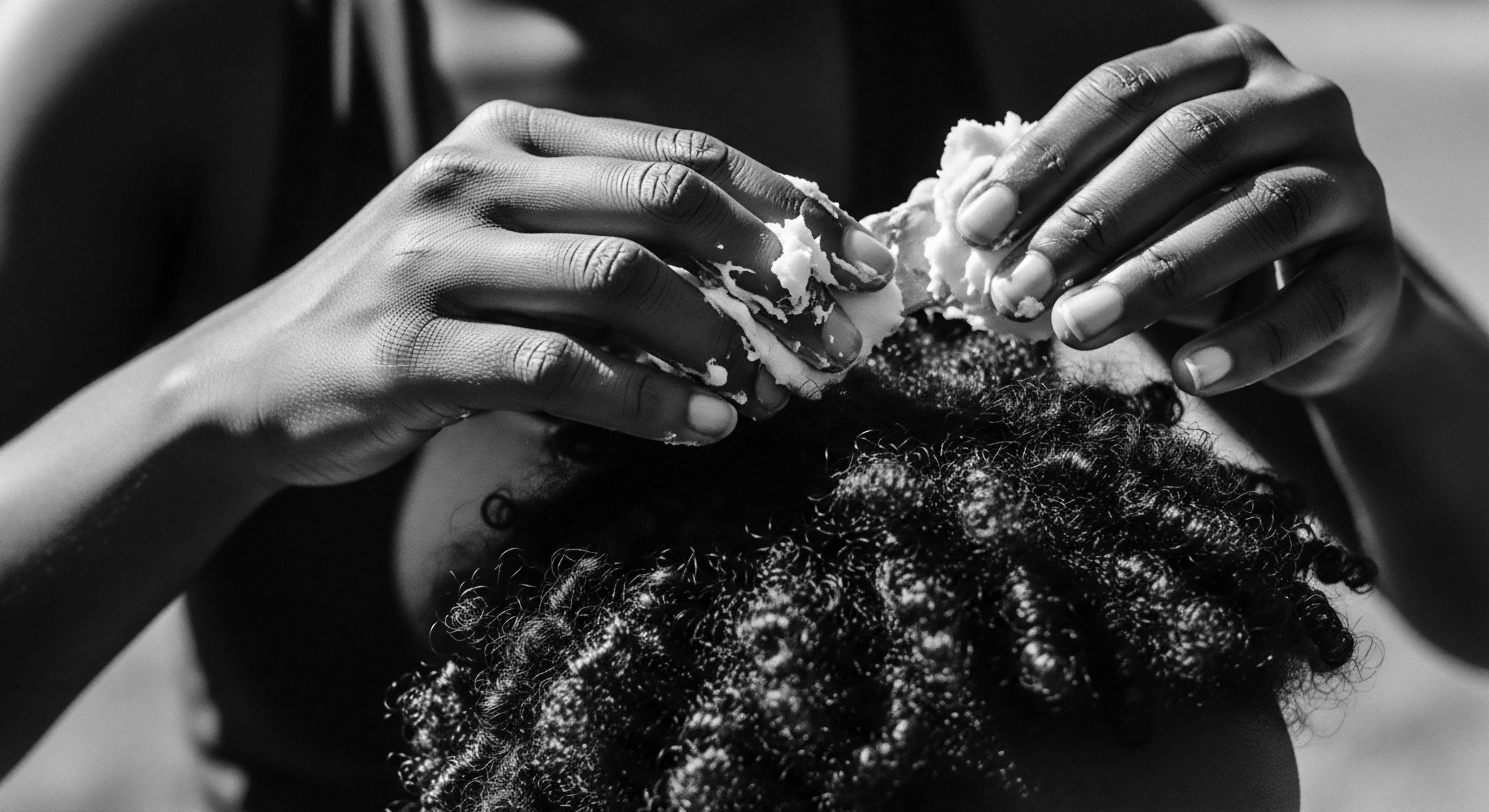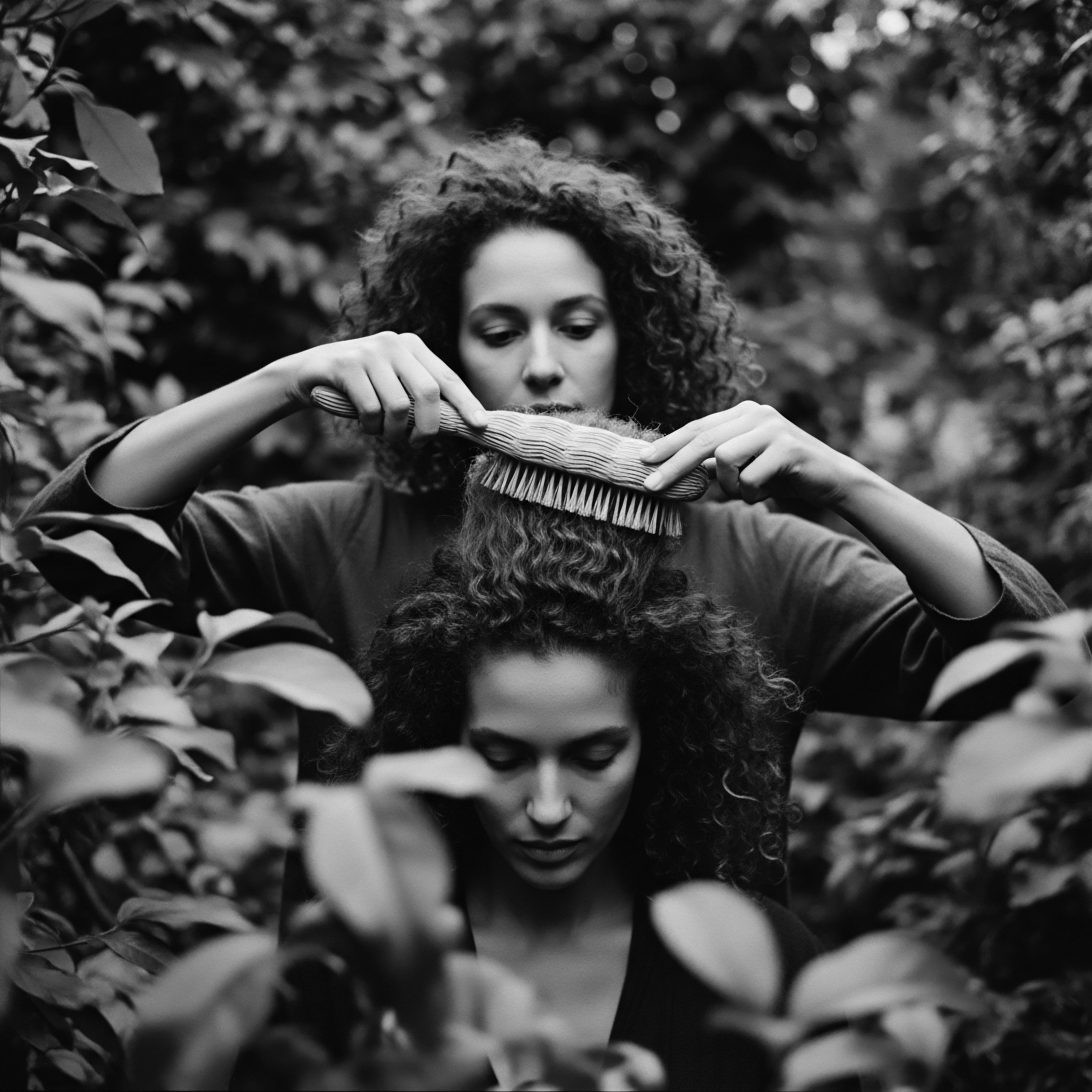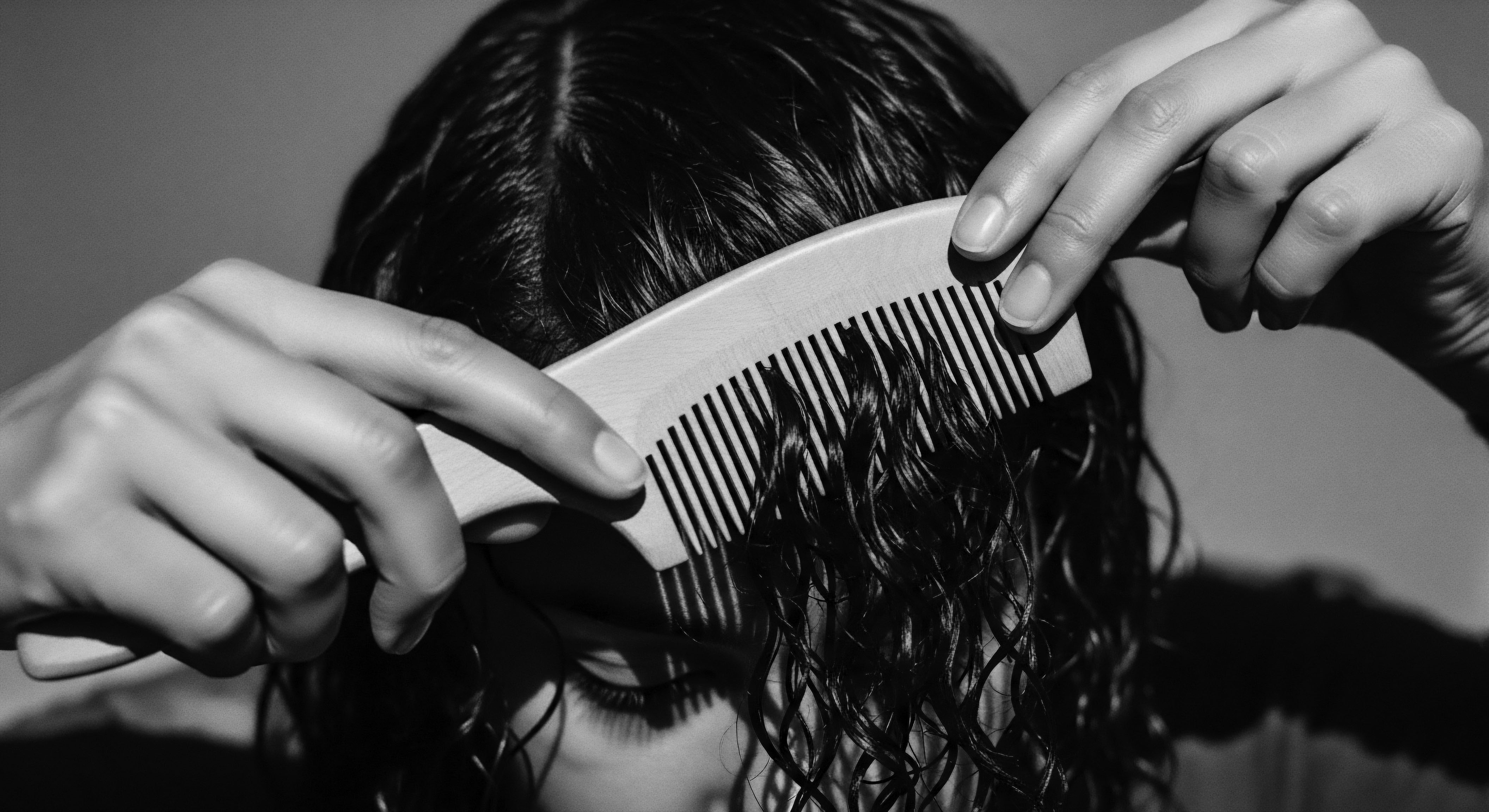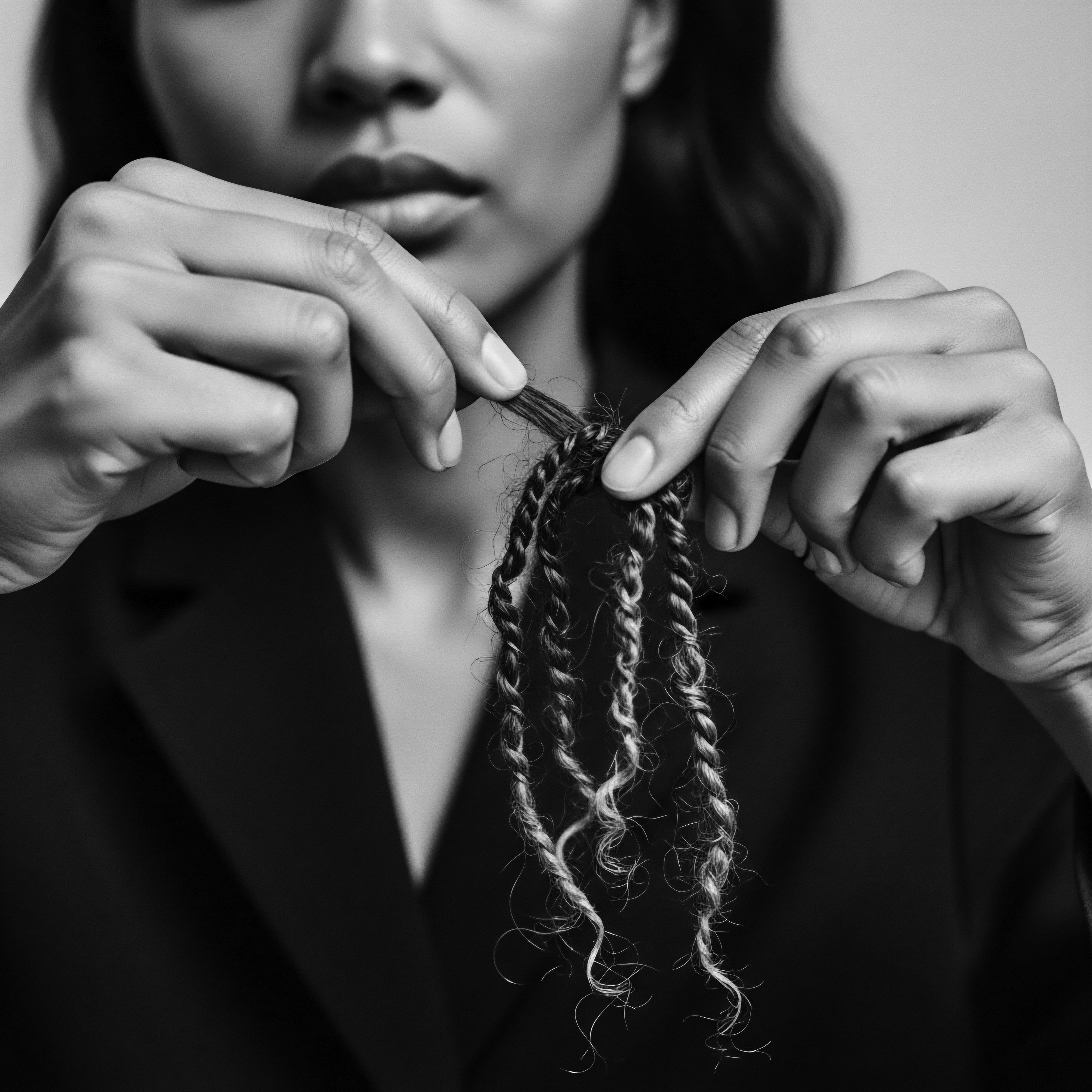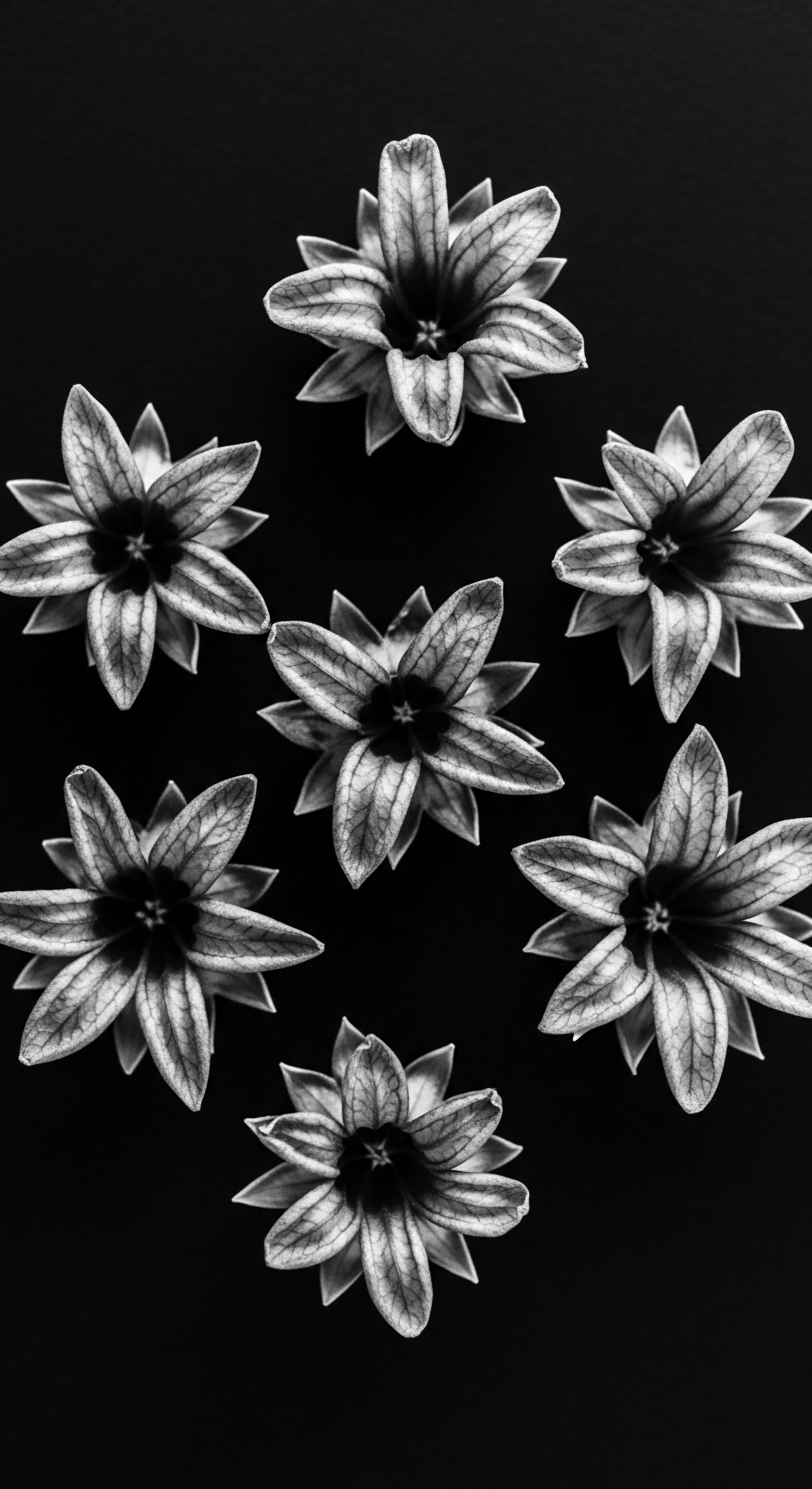
Fundamentals
Botanical Scalp Care, within the profound meditation of Roothea’s ‘living library,’ represents a foundational practice rooted in the earth’s generosity, dedicated to the careful tending of the scalp using plant-derived ingredients. This practice acknowledges the scalp as the fertile ground from which every strand emerges, a living ecosystem requiring deliberate attention and sustenance. It is not a mere application of products; rather, it is a thoughtful engagement with botanical elements, understanding their inherent capacities to soothe, cleanse, balance, and fortify the scalp environment. The meaning of Botanical Scalp Care is therefore intrinsically tied to a return to elemental wisdom, recognizing that the vitality of hair begins at its very source, the scalp.
For those newly embarking on this path, the core delineation of Botanical Scalp Care involves a departure from synthetic, often harsh, chemical interventions. Instead, it turns to the wisdom held within leaves, roots, flowers, and seeds. This care system operates on the premise that natural compounds, when applied with understanding and consistency, can address a myriad of scalp conditions, from dryness and irritation to imbalances in sebum production, all while supporting the natural growth cycle of hair. It is a gentle yet potent methodology, honoring the delicate balance of the scalp’s microbiome and its crucial role in hair health.
Botanical Scalp Care is the mindful cultivation of scalp health through the judicious application of plant-derived ingredients, honoring the ancestral connection between earth’s bounty and vibrant hair.
The historical echo of Botanical Scalp Care resonates deeply with ancestral practices, particularly within communities where textured hair has been a crown of identity and heritage. Before the advent of modern chemistry, our forebears relied solely on what the earth offered. This ancestral wisdom, passed down through generations, often involved specific plant concoctions for scalp cleansing, conditioning, and medicinal applications. These early practices form the bedrock of what we now delineate as Botanical Scalp Care, a continuum of care that bridges ancient understanding with contemporary insights.
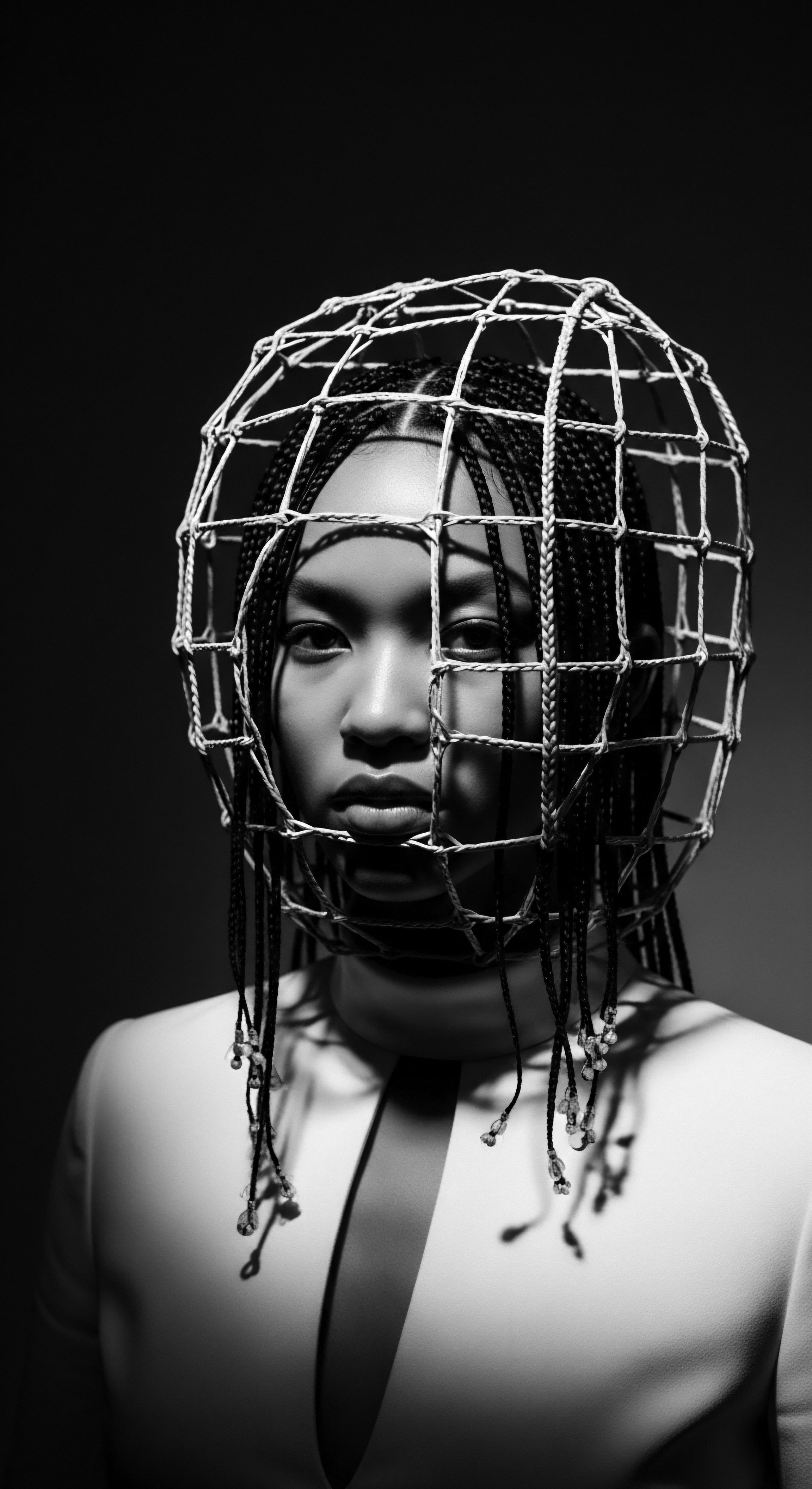
The Soil of the Strand: A Microcosm of Life
Consider the scalp as a garden. Just as a gardener understands the soil’s composition, its moisture levels, and its nutrient content as paramount to the flourishing of plants, so too must we approach the scalp. The scalp’s skin, its follicles, and its intricate network of blood vessels are the literal foundation for hair growth.
When this foundation is compromised ❉ be it through irritation, inflammation, or lack of proper circulation ❉ the hair that springs from it often reflects this distress, appearing weak, brittle, or slow to lengthen. Botanical Scalp Care, in its simplest interpretation, aims to restore and maintain this optimal soil condition, allowing each hair strand to emerge with its fullest potential.
This initial understanding of Botanical Scalp Care provides a gentle entry point into a practice that is both scientifically sound and deeply reverent of natural processes. It is a call to observe, to learn from the plants, and to apply that knowledge with a sensitive touch, always remembering the rich legacy of care that informs its very existence. The meaning of this practice, even at its most fundamental level, extends beyond the physical, touching upon a deeper connection to the earth and the enduring wisdom of those who came before us.
- Aloe Vera ❉ Revered for its soothing gel, often used to calm scalp irritation and provide hydration, a practice with ancient roots in many cultures.
- Rosemary ❉ Known for its stimulating properties, frequently incorporated into rinses and oils to encourage circulation and support scalp vitality.
- Tea Tree Oil ❉ Valued for its purifying qualities, employed in diluted forms to address scalp imbalances and maintain a clear environment.
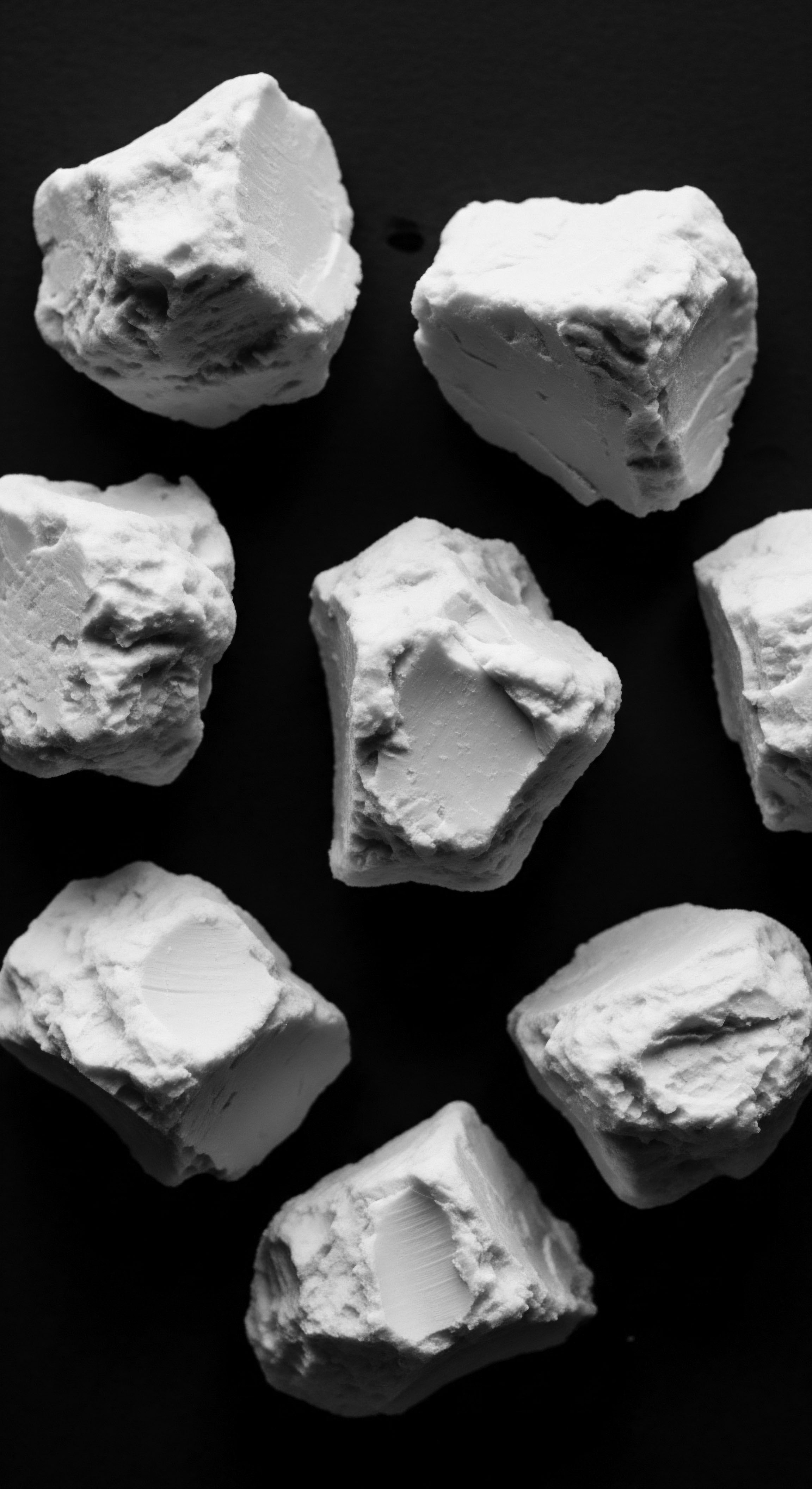
Intermediate
Moving beyond the foundational tenets, the intermediate delineation of Botanical Scalp Care delves into the specific mechanisms by which plant compounds interact with the complex physiology of the scalp. This understanding is not merely an intellectual exercise; it is an act of deeper appreciation for the ancestral knowledge that often intuited these very interactions, long before scientific instruments could confirm them. The meaning of Botanical Scalp Care, at this level, expands to encompass a more detailed comprehension of phytochemistry and its application to the unique requirements of textured hair.
The intricate structure of the scalp’s epidermal layers, the sebaceous glands, and the hair follicles presents a sophisticated biological system. Botanical ingredients, unlike many synthetic alternatives, often contain a spectrum of compounds ❉ vitamins, minerals, antioxidants, and anti-inflammatory agents ❉ that work synergistically. This synergy often mirrors the complex biological processes within the body itself, leading to a more harmonious and sustainable outcome for scalp health. For instance, the use of certain botanical extracts can modulate inflammation, a common underlying factor in various scalp discomforts experienced by individuals with textured hair, whose delicate strands and often tighter curl patterns can make the scalp more susceptible to environmental stressors or product buildup.
The efficacy of Botanical Scalp Care lies in the synergistic action of plant compounds, a sophisticated interaction that echoes ancestral wisdom in promoting scalp equilibrium for textured hair.
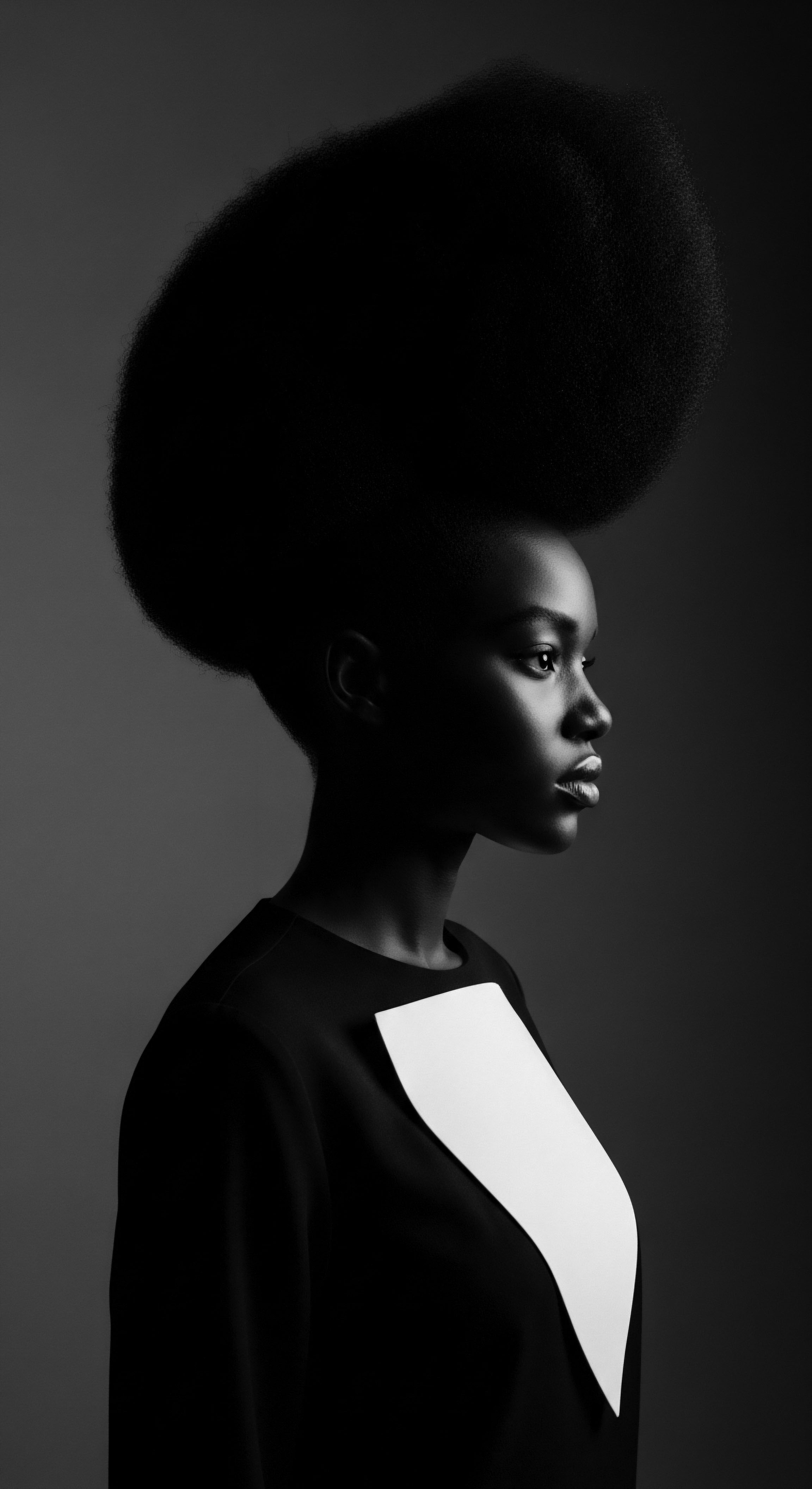
Phytochemical Symphony: A Deeper Look at Botanical Efficacy
Consider the role of plant-derived antioxidants in mitigating oxidative stress on the scalp. Our scalps, like all skin, are exposed to environmental aggressors that can generate free radicals, potentially damaging cellular structures and contributing to inflammation. Many botanicals, such as green tea extract or hibiscus, are abundant in polyphenols and flavonoids, powerful antioxidants that neutralize these harmful agents. This protective action is not a modern discovery; indigenous communities across the African diaspora have long utilized plants rich in these compounds for both internal wellness and external application, including hair and scalp treatments, intuiting their restorative capacities.
Moreover, the intermediate interpretation of Botanical Scalp Care acknowledges the distinct needs of textured hair. The natural oils produced by the sebaceous glands, crucial for scalp and hair health, often struggle to travel down the unique helical structure of coily and kinky strands, leaving the scalp prone to dryness and the hair vulnerable to breakage. Botanical oils, such as jojoba or argan, which closely mimic the scalp’s natural sebum, or those rich in fatty acids like shea butter, serve not only to moisturize the scalp but also to provide a protective barrier, reducing transepidermal water loss. This thoughtful selection of botanicals, tailored to the specific anatomical and physiological characteristics of textured hair, represents a more refined understanding of this care modality.
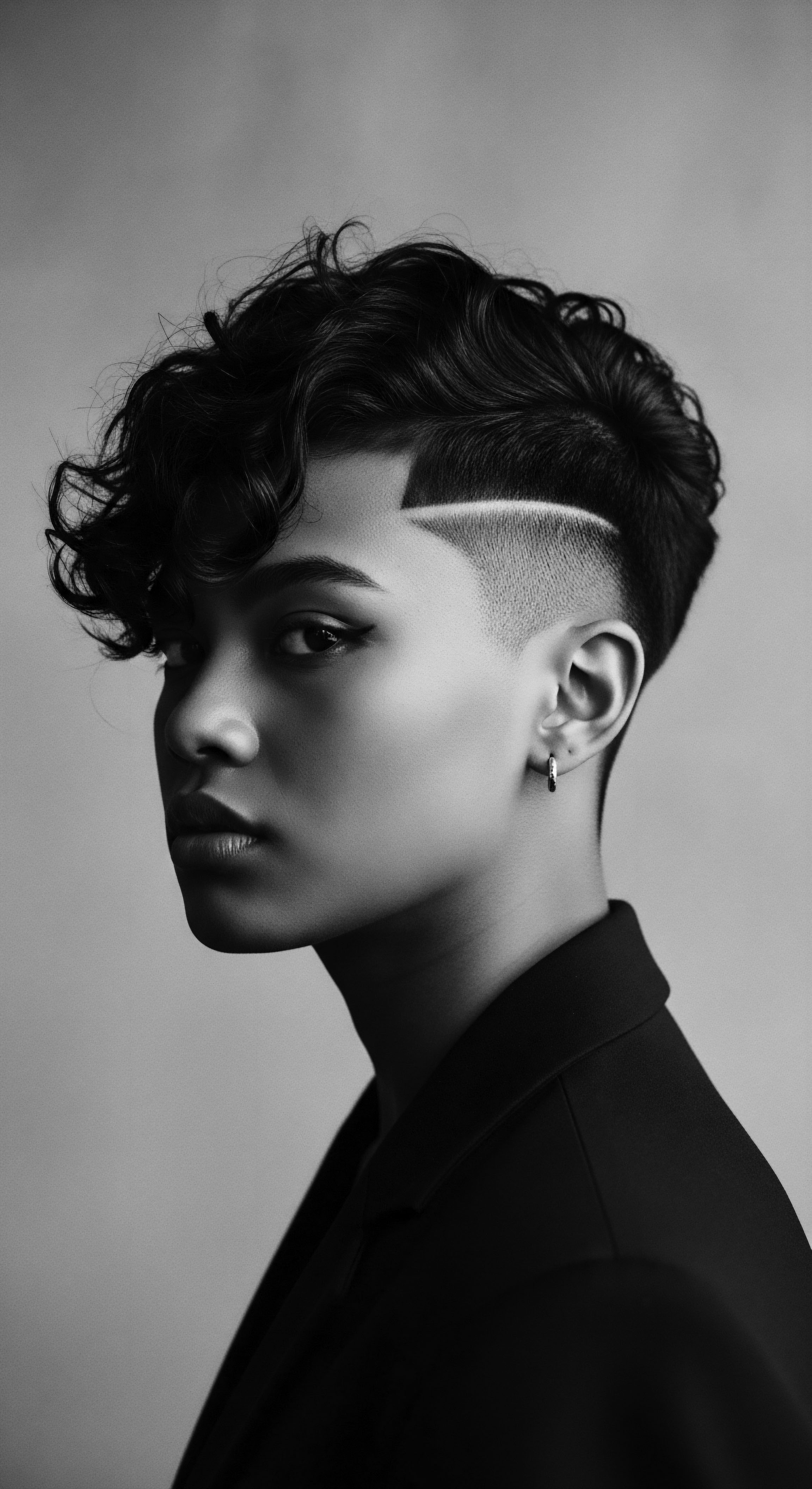
Ancestral Alchemy: Formulations of Old
The historical record offers compelling insights into the sophisticated botanical formulations developed by ancestral communities. In West Africa, for example, the use of chebe powder (from the Croton zambesicus plant) by the Basara women of Chad is a powerful illustration of botanical scalp care. This traditional practice, documented by anthropologists, involves applying a mixture of chebe powder, natural oils, and other ingredients to the hair and scalp. While often celebrated for its reported effects on hair length retention, the ritual itself inherently provides profound scalp benefits.
The chebe powder, a finely ground botanical, likely aids in absorbing excess oils, exfoliating the scalp, and creating an environment conducive to healthy growth. The oils provide emollience and protection. This practice, passed down through generations, is not merely a cosmetic routine; it is a cultural anchor, a communal activity, and a testament to deep botanical knowledge (Diarra, 2018). The meticulous preparation and consistent application speak to a long-held understanding of the synergy between botanical ingredients and scalp vitality.
The selection of botanicals in this context is not arbitrary; it is informed by centuries of observation and empirical knowledge. The ability of certain plants to soothe irritation, reduce flaking, or stimulate circulation was understood through direct experience, long before laboratories could isolate their active compounds. This intermediate level of understanding calls for a deeper reverence for these ancestral practices, recognizing them not as quaint historical footnotes, but as sophisticated systems of care that continue to hold immense relevance today. The very delineation of Botanical Scalp Care becomes richer when viewed through this lens of inherited wisdom and validated scientific inquiry.
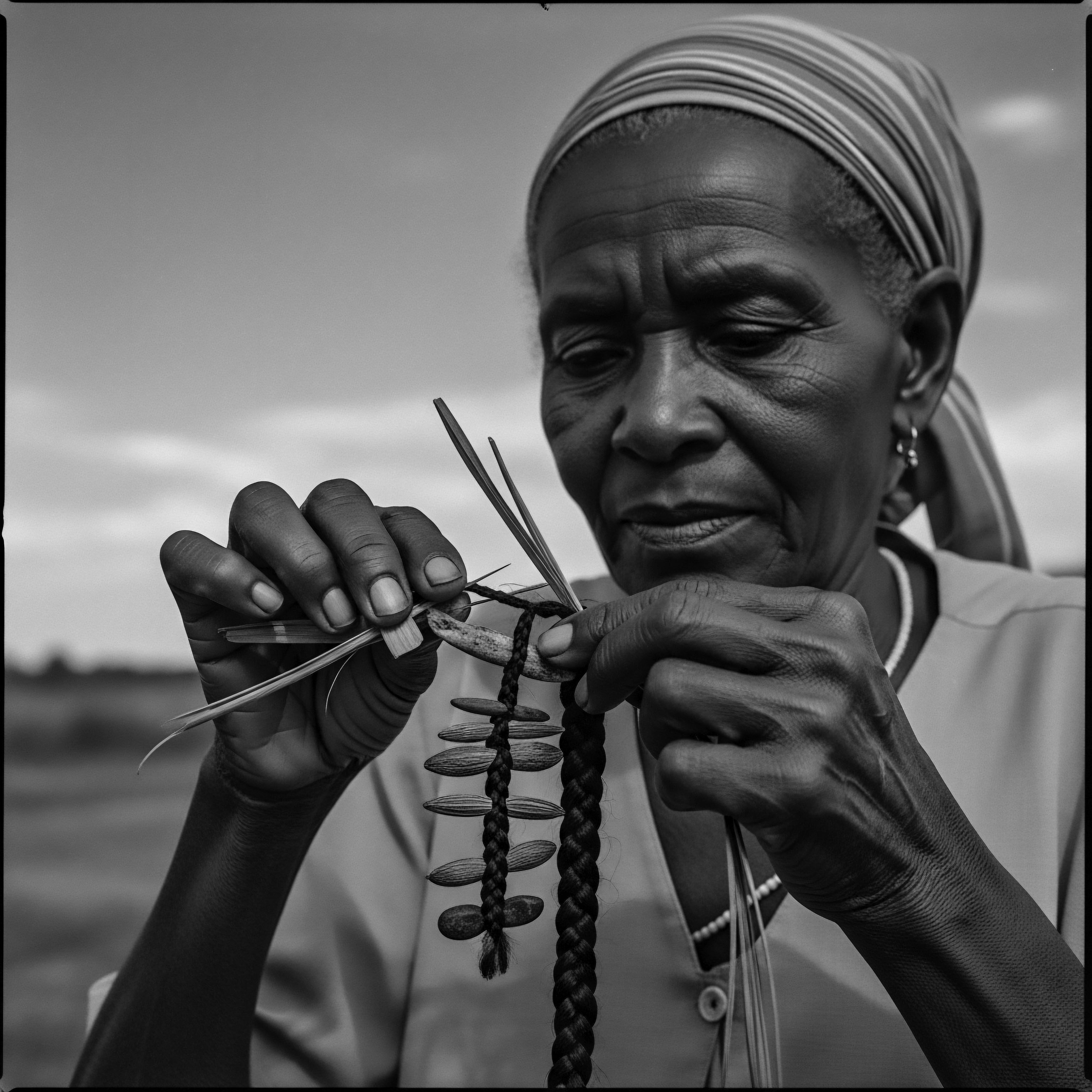
Academic
The academic delineation of Botanical Scalp Care transcends superficial application, presenting itself as a complex interdisciplinary field at the confluence of ethnobotany, dermatological science, and cultural anthropology, particularly within the context of textured hair heritage. This scholarly interpretation acknowledges Botanical Scalp Care as a sophisticated system of bio-cultural practice, where the intricate biochemistry of plant compounds interacts with the unique anatomical and physiological specificities of the scalp and hair follicle, all deeply embedded within a matrix of ancestral knowledge and diasporic identity. The precise meaning of Botanical Scalp Care, from an academic vantage, is therefore the systematic investigation and validation of traditional plant-based scalp therapies, examining their mechanisms of action, efficacy, and their profound psycho-social significance for communities with rich textured hair legacies.
A rigorous academic inquiry into Botanical Scalp Care necessitates a departure from anecdotal evidence, demanding a comprehensive examination of phytocompounds, their bioavailability, and their specific receptor interactions within the dermal layers and follicular units. For instance, the anti-inflammatory properties attributed to many botanicals are not merely generalized effects; they often involve specific pathways, such as the inhibition of cyclooxygenase (COX) enzymes or the modulation of cytokine production, akin to pharmaceutical interventions but often with a broader spectrum of action and reduced side effects. This precision in understanding allows for a scientific validation of long-held traditional practices, transforming intuitive wisdom into empirically supported methodologies.
Academically, Botanical Scalp Care is a bio-cultural nexus, systematically validating traditional plant-based therapies through the lens of phytochemistry, dermatology, and anthropology, especially for textured hair heritage.
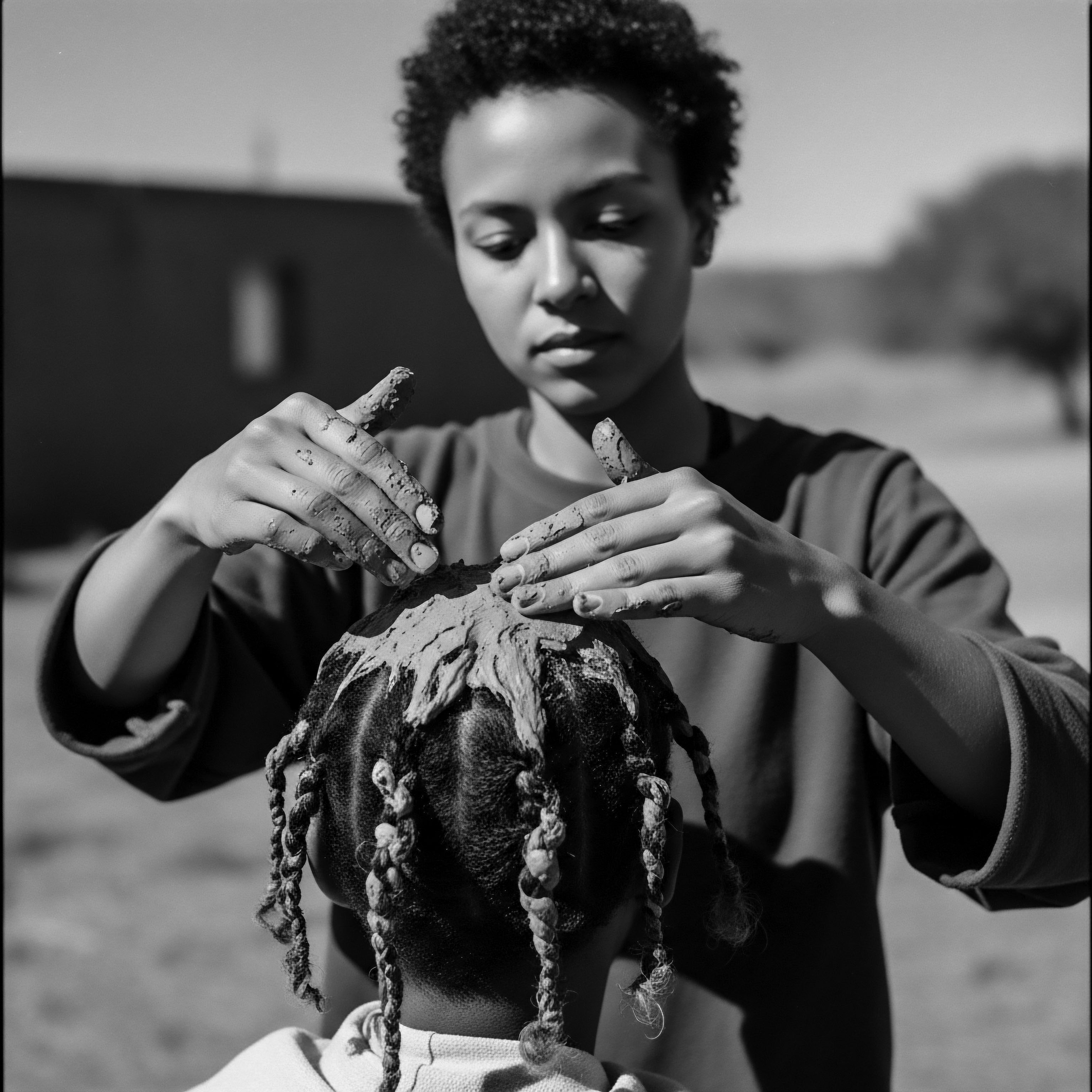
The Biopsychosocial Nexus: Hair, Scalp, and Identity
The academic lens further compels an exploration of the biopsychosocial dimensions of Botanical Scalp Care, particularly for individuals of African and mixed-race descent. Hair, for these communities, is not merely a biological appendage; it is a powerful signifier of identity, resilience, and resistance, a living archive of history and memory. Scalp health, therefore, extends beyond mere physiological comfort; it impacts self-perception, social interaction, and overall psychological well-being.
Chronic scalp conditions, often exacerbated by harsh styling practices or environmental factors, can lead to significant distress, impacting self-esteem and cultural connection. Botanical Scalp Care, when viewed through this academic prism, becomes a therapeutic intervention that addresses not only the biological symptoms but also the psychological and social implications of scalp health, offering a pathway to reclaiming agency over one’s body and heritage.
The historical trauma associated with hair discrimination, particularly for Black individuals, underscores the critical importance of care practices that affirm and celebrate textured hair. The widespread adoption of chemical relaxers, for instance, often led to severe scalp burns and damage, a consequence of societal pressures to conform to Eurocentric beauty standards. Botanical Scalp Care, in this context, represents a deliberate counter-narrative, a return to ancestral methods that prioritize the health and integrity of the natural hair and scalp. This historical perspective, when integrated into academic discourse, reveals the profound socio-political implications embedded within what might superficially appear to be a simple cosmetic practice.
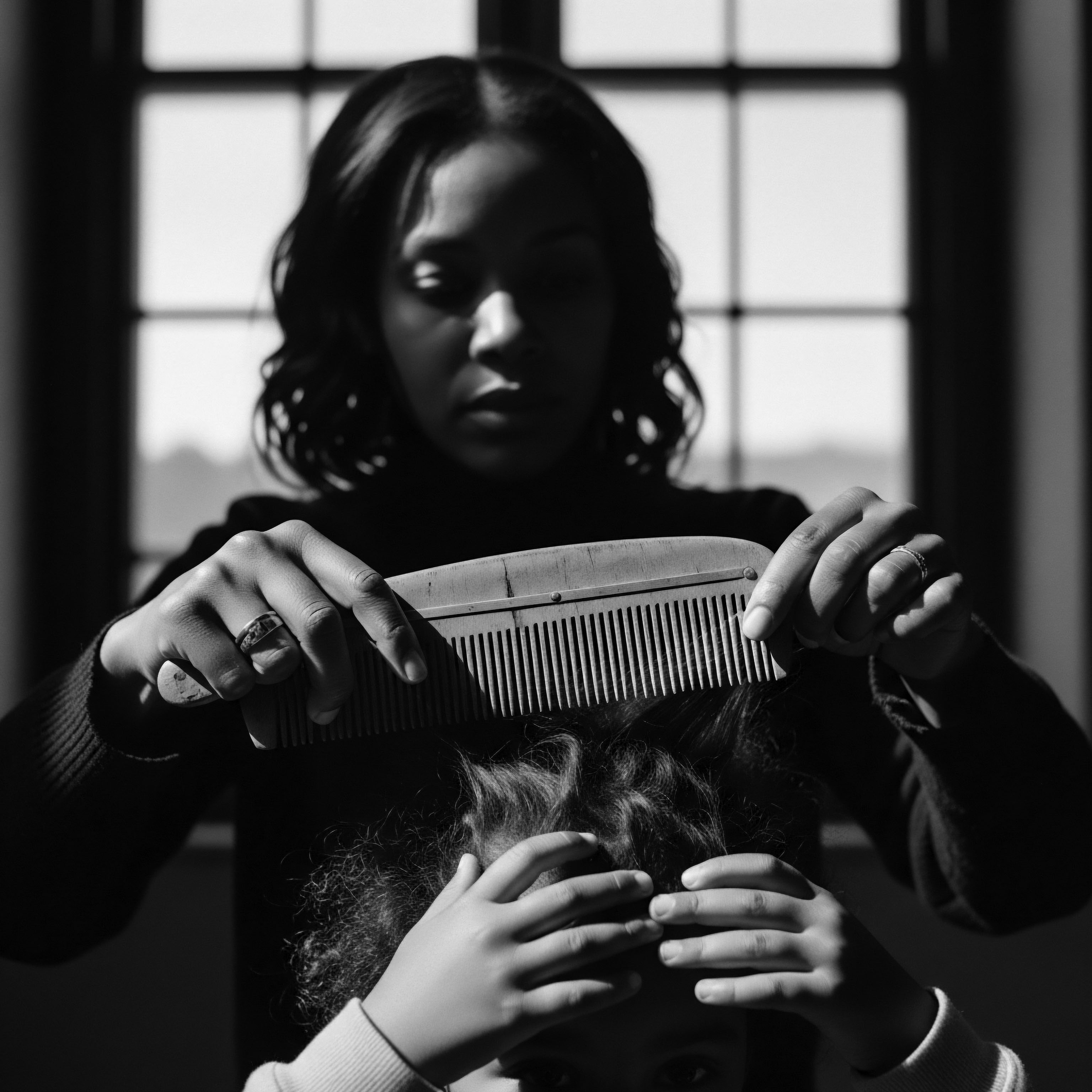
Ethnobotanical Pharmacology: Unearthing Ancestral Efficacy
A critical area of academic inquiry involves the ethnopharmacological investigation of traditional botanical ingredients. This entails not only identifying the active compounds but also understanding the methods of preparation and application within ancestral contexts, as these often influence the bioavailability and efficacy of the botanical constituents. For example, the traditional preparation of certain plant extracts through decoction or infusion, rather than modern solvent extraction, can yield different profiles of active compounds, impacting their therapeutic potential for scalp conditions. The academic interpretation of Botanical Scalp Care thus necessitates a respectful and rigorous engagement with indigenous knowledge systems, recognizing them as valid sources of scientific insight.
Research into the traditional uses of plants for scalp and hair care in the African diaspora reveals a sophisticated understanding of plant properties. For instance, the practice of using mucilaginous plants like okra or flaxseed to create slippery, detangling rinses not only aids in managing tightly coiled hair but also provides humectant properties to the scalp, preventing dryness. This ancestral knowledge, now being validated by studies on polysaccharide content and film-forming capabilities, exemplifies the rich scientific heritage embedded within traditional care. The delineation of Botanical Scalp Care, from an academic standpoint, therefore, requires a commitment to cross-cultural validation and a decolonization of scientific inquiry, ensuring that the wisdom of the past informs the innovations of the present.
One compelling case study that illuminates the profound impact of Botanical Scalp Care within the textured hair heritage is the historical use of castor oil. Originating from Africa and introduced to the Caribbean and Americas through the transatlantic slave trade, castor oil, particularly the dark, unrefined Jamaican Black Castor Oil (JBCO), became a cornerstone of hair and scalp care for enslaved and later freed Black populations. Its traditional preparation involves roasting and boiling castor beans, yielding a thick, dark oil rich in ricinoleic acid. Academically, ricinoleic acid is known for its anti-inflammatory and antimicrobial properties, which are highly beneficial for scalp health (Marwat et al.
2014). For generations, JBCO was applied to the scalp to address dryness, promote growth, and alleviate conditions like dandruff and itching. This practice was not merely about hair aesthetics; it was a ritual of self-preservation and cultural continuity in the face of immense oppression. The consistent use of this botanical for scalp nourishment became a tangible link to ancestral lands and practices, a quiet act of defiance and self-care that transcended its immediate physiological benefits. The historical and ongoing reliance on castor oil within Black hair traditions provides a powerful academic example of how botanical scalp care functions as both a dermatological intervention and a deeply significant cultural artifact, preserving identity and fostering resilience across generations.
The future trajectory of Botanical Scalp Care, viewed academically, involves rigorous clinical trials to substantiate efficacy, detailed phytochemical profiling of traditional ingredients, and the development of sustainable sourcing practices that respect biodiversity and indigenous intellectual property. It is an area ripe for innovation, but one that must proceed with profound respect for its historical roots and the communities that have preserved this invaluable knowledge. The comprehensive meaning of Botanical Scalp Care, at this elevated level of understanding, is thus a dynamic, evolving concept that bridges ancient wisdom with cutting-edge science, all in service of nurturing the scalp and honoring the vibrant heritage of textured hair.
- Ricinoleic Acid ❉ A unique fatty acid found in castor oil, academically studied for its anti-inflammatory and antimicrobial effects on the scalp.
- Polyphenols ❉ Plant compounds, abundant in botanicals like green tea and hibiscus, recognized for their potent antioxidant activity, protecting scalp cells from oxidative damage.
- Mucilage ❉ Gel-like substances from plants such as flaxseed and okra, scientifically proven to provide humectant and emollient properties, aiding in scalp hydration and detangling.
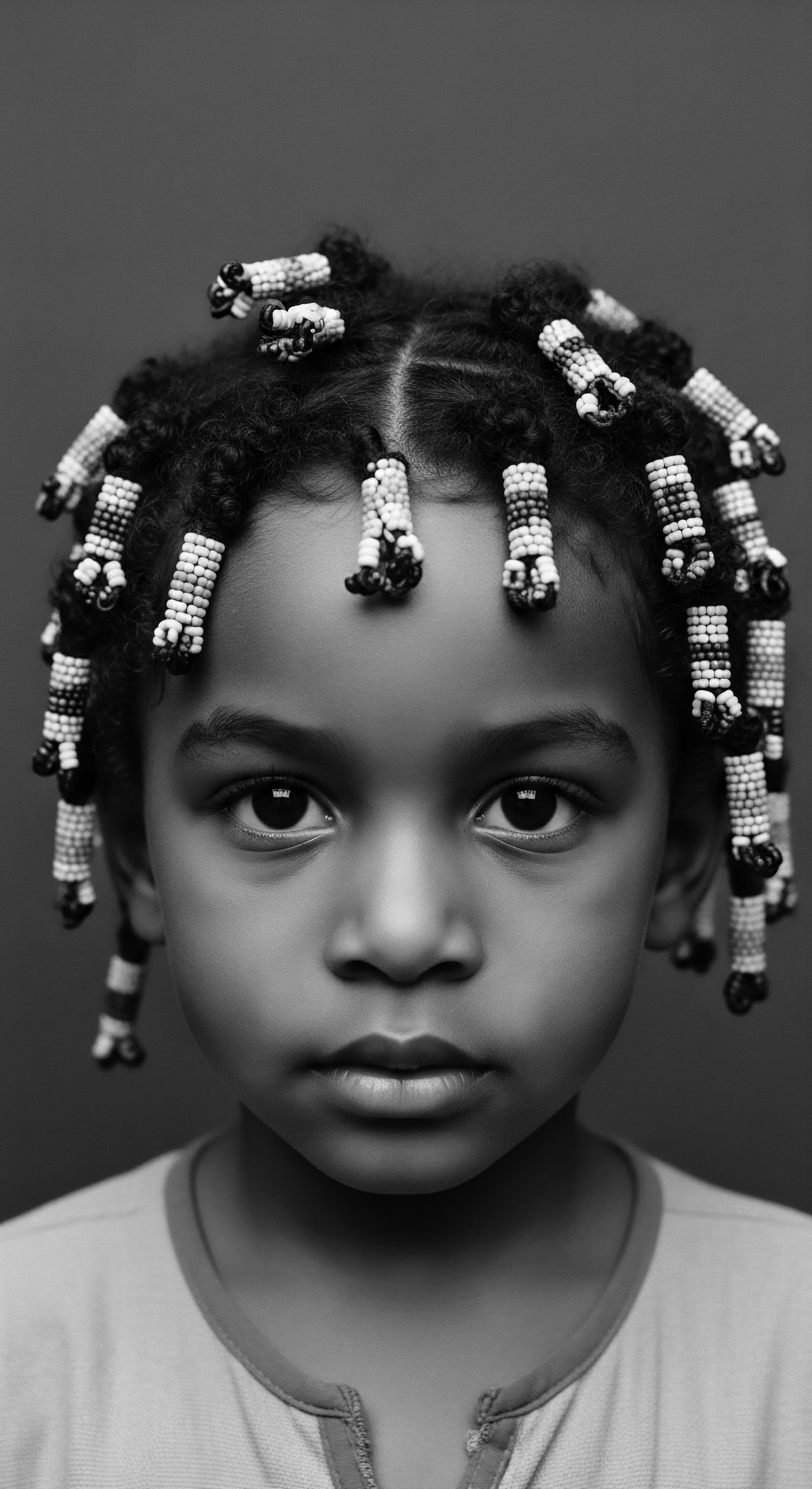
Reflection on the Heritage of Botanical Scalp Care
As we draw near the culmination of this exploration, the enduring significance of Botanical Scalp Care within Roothea’s ‘living library’ becomes unmistakably clear. It is more than a practice; it is a profound echo from the source, a tender thread connecting generations, and an unbound helix of identity stretching into the future. The very definition of Botanical Scalp Care, when viewed through the lens of textured hair heritage, reveals itself as a continuous conversation between humanity and the earth, a dialogue steeped in reverence and sustained by inherited wisdom.
The ancestral hands that first pressed oils from seeds, ground herbs into powders, and brewed potent infusions were not merely performing rudimentary acts of hygiene. They were engaging in rituals of sustenance, protection, and cultural affirmation. These acts of care, born from necessity and refined by observation, became embedded in the collective memory of communities, particularly those of the African diaspora, for whom hair was often the last bastion of self-expression and cultural memory amidst erasure. The knowledge of which plant could soothe an irritated scalp, which could stimulate growth, or which could offer a protective shield against the elements, was a vital inheritance, passed down through the cadence of daily life and the rhythm of communal grooming.
The journey of Botanical Scalp Care, from elemental biology to its role in voicing identity, reminds us that the health of our scalp is intrinsically linked to the health of our spirit and the strength of our cultural roots. It is a powerful affirmation that the answers we seek for modern challenges often reside in the ancient pathways of our ancestors, pathways illuminated by the enduring wisdom of the plant kingdom. This ongoing legacy of care, rooted in the very soil that sustained our forebears, continues to offer a potent source of wellness and connection for every strand that grows, a living testament to resilience and beauty.

References
- Diarra, S. (2018). The Basara Women of Chad: Their Hair Care Secrets and Cultural Significance. Cultural Heritage Press.
- Marwat, S. K. Khan, F. A. & Khan, M. A. (2014). Medicinal Plants of the World: Chemical Constituents, Traditional and Modern Uses. Springer.
- Pinder, S. (2018). Hair, Race, and Identity: An Interdisciplinary Approach. Routledge.
- Riggs, A. (2020). African Ethnobotany: Indigenous Knowledge and Plant-Based Practices. University of California Press.
- Stewart, D. L. (2013). Kinky, Coily, Curly Kinfolk: The Science, History, and Art of Black Hair. University Press of Mississippi.
- Turner, E. (2019). The Global History of Hair. Bloomsbury Academic.
- Walker, A. (2015). African Hair: Its Cultural and Historical Significance. Duke University Press.

